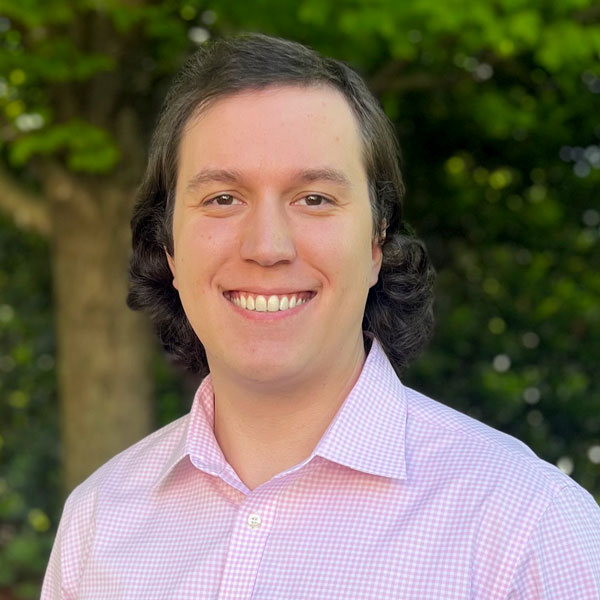Staff Highlight: Chase Turner

Chase Turner is a TMS Technician with the Skyland Trail adult program. Chase has a background in research, outcomes, and cognitive psychology. He uses evidence-based techniques, alongside our interim Chief Medical Officer Dr. Hunter, to assist patients with treatment-resistant depression.
Can you provide an overview of what TMS is and how it works as a treatment for various conditions?
Transcranial Magnetic Stimulation (TMS) is an FDA-approved treatment we offer at Skyland Trail that uses magnetic fields to stimulate the Dorsolateral Prefrontal Cortex (DLPFC) to improve symptoms of major depressive disorder. We use a bilateral protocol that treats the left and right sides of the DLPFC where the left side treatment excites and the right side inhibits the nerve cells in the brain to improve symptoms of depression. It is a non-invasive treatment that takes place five times a week over the course of about two months. Each session lasts between 5-18 minutes.
How did you become interested in the field of TMS technology, and what led you to pursue a career as a TMS technician?
I first learned of TMS during my undergraduate Cognitive Psychology course and found it fascinating! My background is in research so when I saw an opening here at Skyland Trail to work in TMS with our impressive staff I really wanted to apply. Fortunately for me, the position was combined with a role in Research and Outcomes so it was the perfect blend of my previous experience with something I was interested in!
As a TMS technician, what is your role in the treatment process, and how do you collaborate with other healthcare professionals?
As the TMS technician, I work closely with the attending psychiatrist Dr. Hunter, to ensure the TMS sessions are conducted effectively. My role includes setting up the magnetic coil, conducting treatment, and adjusting settings as needed during treatment. I also collect and analyze data on TMS treatment at Skyland Trail.
TMS treatment can be a new experience for many patients. How do you provide support and answer their questions to make them feel more comfortable during their sessions?
TMS is certainly an interesting and new experience for patients, the machine and treatment can sound invasive or intimidating to those who are unfamiliar with it. Fortunately, during the consultation prior to treatment and during the initial session, Dr. Hunter is available to provide support and answer any questions patients may have. As the technician, I tend to default to the peer-reviewed literature when it comes to any apprehension or questions patients may have. I find it best to look at the evidence-based work being published when providing support for patients. As for comfort during sessions, we have a wide variety of stress balls/fidgets for patients, we also encourage our patients to meditate or practice mindfulness during treatment. Patients can also use their phones as long as they don’t move their heads! I’ve also been told that while our chair looks like it belongs in a dentist’s office, it’s actually quite comfortable.
How do you see the future of TMS evolving, and are there any exciting developments or potential applications that you’re looking forward to in the coming years?
TMS is becoming more widely available which is definitely exciting! As for future developments, research is being conducted on its application for PTSD, chronic migraines, addiction, and more. There are also new protocols being developed that accelerate treatment time to be completed in days instead of weeks. When training with the MagVenture company, who designed our TMS machine, they shared the exciting possibility of new TMS technology that could be used to repair bone structure! So lots of exciting possibilities for TMS in the coming years.
Can you share a favorite quote, piece of advice, or cheerleading mantra that inspires you?
A quote I have always liked since reading it as an adolescent is,
“In the midst of winter, I found there was, within me, an invincible summer”.
-Albert Camus
